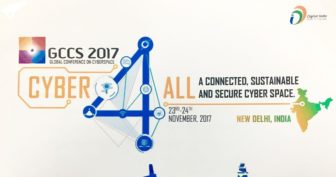Tag: International Principles on the Application of Human Rights to Communications Surveillance

Nominate your Human Rights Heroes & Villains
Every year, Access Now celebrates the heroes of human rights in the digital age, and we’re looking for nominations! We need your help to find the people and groups who are working to defend our rights.

A policy maker’s guide to the Global Conference on Cyberspace 2017
Our new policy guide aims to help participants at GCCS 2017 fulfill its promise to strengthen global cybersecurity while protecting human rights.

Now accepting nominations for our fourth annual Heroes & Villains Awards
You have until September 13, 2017 to nominate your heroes (or villains) of human rights.

A new call for U.S. surveillance reform
Section 702 is the embodiment of mass surveillance. Here are realistic pathways to reform the law before the end of 2017.

Beware: countering “violent extremism” online risks human rights
However well-intentioned, CVE proposals are a minefield for human rights.

How Edward Snowden started a conversation that is changing the world
Edward Snowden did the right thing when he exposed surveillance practices that damage human rights worldwide. He should be pardoned.

Report calls for presumptive ban on government hacking, adding human rights protections
Government hacking is taking place in the dark, and without human rights protections for those targeted or harmed.

Access Now reprises call for rights protections in U.K. IP Bill
The U.K.’s draft Investigatory Powers Bill would undermine encryption and mandate data retention, threatening human rights.

Lurkers prohibited: Human rights apply to social media monitoring
Politicians and law enforcement in the U.S., E.U, and elsewhere are calling for more authority to monitor user-generated social media content, a practice that is inherently intrusive and ripe for abuse. We provide recommendations for limiting such programs.
